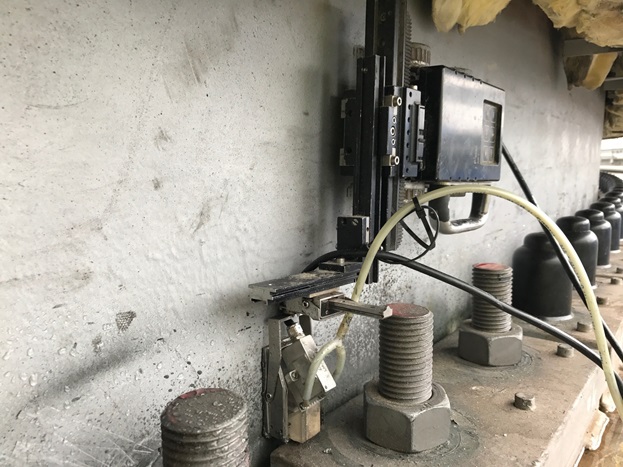Comprehensive Guide to Effective Container Welding Assessment Techniques and Finest Practices for Top Quality Guarantee
In the world of tank welding, rigorous evaluation techniques are vital for securing architectural stability and making sure conformity with market policies. As we discover these crucial parts, it becomes clear that a proactive examination approach is not simply advantageous, but essential for functional success in environments dealing with harmful materials.
Value of Tank Welding Examination

Container welding evaluation works as a preventative step, recognizing prospective defects such as cracks, porosity, or inappropriate joint penetration prior to they escalate into significant problems. Regular inspections not just abide by industry policies and criteria but likewise improve the long life of the tanks, lowering the need for expensive repair services or substitutes.

Visual Evaluation Methods
Utilizing systematic visual inspection strategies is vital for assessing the high quality and stability of welded joints in storage tanks. This technique serves as the initial line of protection in recognizing prospective issues such as splits, damages, and inadequate penetration. The assessor ought to come close to the job with a keen eye, utilizing suitable tools like magnifying glasses, flashlights, and mirrors to enhance visibility.
During the inspection procedure, the assessor must examine the weld profile, ensuring it follows specified criteria and standards (Tank Welding Inspection). This consists of taking a look at the bead size, height, and fusion with the base product. Examiners must also pay close attention to the bordering areas for indicators of thermal distortion or contamination that might impact the weld's efficiency
Documentation of findings is crucial; inspectors ought to record any kind of abnormalities, classifying them by extent for additional examination. This methodical strategy not just aids in prompt problem identification yet also contributes to lasting high quality assurance by ensuring conformity with sector standards. Normal training and calibration of visual inspection strategies even more boost the dependability of assessments, inevitably causing safer and a lot more durable storage tank frameworks.
Non-Destructive Checking Approaches
Non-destructive testing (NDT) techniques are often employed in storage tank welding evaluations to analyze the integrity of bonded joints without compromising their structural honesty. These techniques are crucial for identifying issues such as cracks, voids, and inclusions that could lead to disastrous failures if left unnoticed.
Common NDT techniques consist of ultrasonic testing (UT), which uses high-frequency audio waves to discover internal problems; radiographic screening (RT), employing X-rays or gamma rays to picture weld frameworks; and magnetic bit screening (MT), which reveals surface and near-surface stoppages in ferromagnetic materials (Tank Welding Inspection). Liquid penetrant screening (PT) is additionally widely made use of, with the ability of identifying surface-breaking problems by using a fluorescent or shade comparison color
Each NDT method has its particular applications and benefits, making it essential for examiners to choose the ideal technique based upon the product and the kind of weld being reviewed. The assimilation of these NDT methods into the evaluation process improves the go to this web-site overall quality control structure, ensuring that welded tanks meet safety and efficiency criteria. Ultimately, NDT plays an important function in preserving the stability and durability of storage tank structures in various industrial applications.

Paperwork and Reporting
Ensuring thorough documentation and reporting throughout container welding examinations is critical for maintaining conformity with sector standards and helping with effective communication among stakeholders. Proper documentation acts as a thorough document of examination tasks, searchings for, and any type of restorative actions taken throughout the welding process. This details is crucial not just for quality control however also for audits and regulatory testimonials.

A well-structured examination record must include information such as the date of evaluation, names of inspectors, welding treatments utilized, materials made use of, and any type of discrepancies from established criteria. Furthermore, photographs and layouts can improve the clarity of the record, supplying aesthetic context to the searchings for. It is additionally essential to record any non-conformities in addition to their resolution, making certain that all stakeholders are notified of possible risks and the actions taken to mitigate them.
In addition, preserving a centralized data source for all assessment reports permits easy access and review, fostering a society of transparency and liability. By prioritizing thorough paperwork and coverage, organizations can not just support top quality assurance yet likewise reinforce their credibility within the sector, ultimately bring about enhanced safety and security and operational effectiveness.
Continual Enhancement Practices
Continuous enhancement techniques are essential for improving the high quality and performance of tank welding evaluations. Carrying out an organized strategy to assess and refine evaluation methods cultivates a society of quality control within the organization. One effective technique includes routine training and upskilling of assessment workers to stay abreast of the most recent welding innovations and requirements. This makes sure examiners have the needed expertise and abilities to determine flaws properly.
Additionally, using data-driven analysis allows companies to track examination outcomes, determine trends, and determine locations for enhancement. Employing devices such as origin evaluation can aid in comprehending the underlying problems leading to defects, making it possible for targeted treatments. Furthermore, soliciting responses from assessment teams and stakeholders develops a collective environment that urges cutting-edge services.
Incorporating innovative innovations, such as automated examination systems and real-time tracking, can significantly boost the accuracy and rate of evaluations. Normal audits of the check my site assessment procedures likewise add to a society of accountability and continuous improvement. Eventually, these constant enhancement techniques not only boost the high quality of tank welding inspections however additionally contribute to total operational quality and customer contentment.
Final Thought
In final thought, reliable container welding examination is crucial for guaranteeing the architectural honesty and safety and security of storage space systems, particularly those handling dangerous materials. Employing a combination of visual evaluation methods and non-destructive screening techniques assists in the very early identification find out here now of problems, consequently preserving compliance with market requirements.